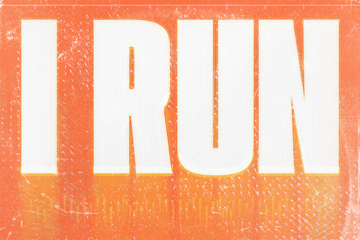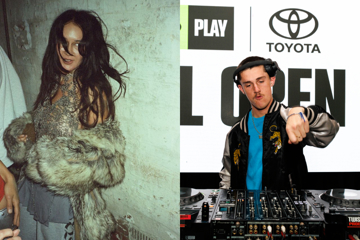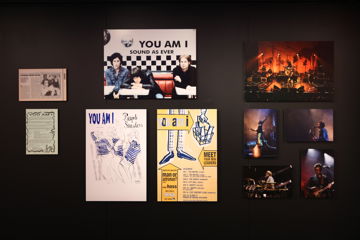It Seems That Not Even Cher Can Save 'Mamma Mia! Here We Go Again'...
"It’s a sequel that assumes that people loved the first film for its characters, as opposed to the fact that, y’know, it was filled with ABBA songs."
MAMMA MIA! HERE WE GO AGAIN
Say what you will about Mamma Mia! Here We Go Again — which, likely, is not anything nice — but since watching the film, your old pal Film Carew has had Waterloo stuck in his head. This is not surprising, given it’s one of pop-music’s all-time earworms. But there’s a meta-text to the way the film — a second go movie spun from the artistically-inert idea of a to-screen ABBA jukebox-musical — employs Waterloo, and how it feels to be on the receiving end of it.
Waterloo is wheeled out, early, in a French restaurant setting, replete with enthusiastic choreography whose ooh-la-la clichés and silver-service sight-gags have a borderline Benny Hill-esque quality. But beyond the zany music-hall mugging, and beneath the tune’s cheery harmonies, the song is a dark study in romantic fatalism, in turning oneself over to a love-struck fate that will bring with it suffering. This is horrible relationship advice, but, here, it doubles as instruction on how to grimly survive nearly two hours of unwanted sequelism and a cast all doing little more than cashing a well-paid cheque. As the tune’s incessant refrain played on, over and over, in my head, its words echoed how I felt, as film critic, being stuck in a Mamma Mia! screening for my own cheque-cashing purposes: couldn’t escape if I wanted to.
Don't miss a beat with our FREE daily newsletter
Another line from Waterloo seemingly serves as the ‘inspiration’ — let’s use the word generously — for Here We Go Again: “the history book on the shelf/is always repeating itself”. Here, a ten-years-on second-movie stages a story that straddles both sequel and prequel, divided between 25 years prior and 5 years on from the original, the past forever echoed in the present as daughter turns out just like mother.
As Amanda Seyfried is set to reopen her mother’s hotel on a remote/fictional Greek Isle, we track back to when her now-departed mother was young; not Meryl Streep, but Lily James, a wanderer out for European adventures post-graduation. It’s essentially an exercise in filling in the backstory behind the first film, how moms met the three men who were competing in its biological-father sweepstakes. Director Ol Parker incessantly cuts between the mirroring narratives with sledgehammer subtlety, the idea of history repeating taken all too literally: past and present sharing not just blonde mother/daughters cleaning up the same hotel, but wacky best friends, comic passport officers, musical numbers in local venues, melodramatic storms, and pregnancies. At the finale, ghost-Meryl and Seyfried share a tender duet, united across the metaphysical plane, wed inextricably together by genetics, spirit, and screenplay contrivance.
In the closing credits, the vaguest divide between its twin narratives gets obliterated, as a full-cast, variety-show-esque Super Trouper singalong finds original-film oldies (Meryl Streep, Christine Baranski, Julie Walters, Pierce Brosnan, Colin Firth, Stellan Skarsgård) arm-in-arm with the actors who played the younger versions of their character (James, Jessica Keenan Wynn, Alex Davies, Jeremy Irvine, Hugh ‘Harry from motherfuckin Fleabag’ Skinner, and Josh Dylan, respectively).
This wilful, literal embrace of anachronism is a fitting end to a movie that’s, generally, pretty give-a-shit about its slapdash execution. Parker comes to the project fresh off writing the Exotic Marigold Hotel films, really staking out the old-people-on-non-threatening-vacation sub-genre. Whilst there’s real devotion to and excitement for the musical numbers (especially a giddy Dancing Queen that involves a fleet of boats), the script feels lazy and tossed-off; there’s really a character, herein, named Fernando.
The blue skies are patently ersatz, as phony as the rooftop set on The Room. Skarsgård’s performance is so disinterested that he feels like an avatar for the whole production. Even the trailer-hyped appearance of Cher — playing, essentially, Cher — feels like shameless queer fan-service. Especially given the tone of the whole is way more dreadfully-earnest than delightfully-camp. It’s a sequel that assumes that people loved the first film for its characters, as opposed to the fact that, y’know, it was filled with ABBA songs.
WHITNEY

With two Whitney Houston docs arriving in the space of a year, these twin portraits of the doomed singer combine to highlight the ghoulish, predatory qualities of this sub-genre of posthumous documentaries. Where Asif Kapadia’s artful Amy found real resonance by implicating both the audience and its own makers as part of a parasitic industry feeding off the famous, there’s nothing so self-aware in Kevin Macdonald’s Whitney.
Instead, it’s another cinematic autopsy, in which a filmmaker sifts through the archive-footage remains, out to fashion a portrait of someone who can no longer speak for themselves. Where Nick Broomfield’s surprisingly-sincere Whitney: “Can I Be Me?” had to make do with various musicians, hangers-on, and bodyguards, Whitney is the work of Houston’s estate, and thus features her family members, and even ex-husband Bobby Brown. But, this doesn’t make the film more insightful: Brown denies speaking at all about the crack years, and many family members still have their repressive mechanisms in working order. The great revelation, already spilled by pre-release, post-Cannes clickbait, is the claim that Houston was sexually abused by her cousin, the late Dee Dee Warwick; a documentary film as forum for such a bombshell seeming apt in an era of trial-by-media.
It’s the one moment where Whitney opens up, potentially, to the present-moment; carrying real-world repercussions that resound beyond the safe, hemmed-in confines of the rockumentary, with its talking heads (in front of school-photo-day-worthy backdrops) and playful montages made from old videos (I Wanna Dance With Somebody the whole money-making '80s in a single song). The effect of the whole is blunted, though, for anyone who just watched a Whitney documentary a year ago, and saw the same TV interviews, the same anecdotes, the same archive already dug into.
Or, for that matter, for anyone who watched Amy. The story — prodigious talent, commercial breakout, parasitic family, crack-smoking, death — is familiar from both, making Whitney feel even more like a genre movie; yet another easily-consumable entertainment stitched together from a televised downward-spiral, teetering on the uneasy precipice between real profundity and car-crash muckrakery.
THE GOSPEL ACCORDING TO ANDRÉ
The obligatory fashion-doc pic of style icon André Leon Talley starts out in the realm of artless one-size-fits-all: here’s the celebrity talking heads — Tom Ford, Marc Jacobs, Anna Wintour, Manolo Blahnik — waxing poetic about the subject; here’s the roll-out of pictures and videos from his salad days; here’s the man himself, a larger-than-life figure spouting his catchphrases. There’s resonance to the story: a black, queer man who grew up in the segregated South forces his way into the fashion world, knocking down doors and beating back prejudice as he goes. But there’s also inertia in the format, these celebrity-profile documentaries proliferating wildly, made to clutter streaming-service menus.
Kate Novack’s film does little to counter the familiar: both poring through the past and tailing along after Talley in the present, retaining a tasteful, respectful, worshipful distance all the while. But cracks in the format, gladly, start to appear; cracks through which Talley’s light can shine through. He, eventually, talks candidly about his experiences with racism, connecting his own story to greater sufferings experienced by his family, and black America. As Talley talks, the production plays out against the US election, the subtext gathering like sure stormclouds: for as much progress as has been made — and, there, stands Michelle Obama on the cover of Vogue — history has a sad way of repeating.
RBG

The very model of crowdpleasing documentary mediocrity, RBG has been a wild financial success in the US, functioning as a kind of cinematic balm: soothing the nerves of a population whose political circus is a daily, televised horrorshow. In that, Betsy West and Julie Cohen’s movie feels pleasingly functional, offsetting the fact that its filmmaking rarely feels inspired.
Here, in 97-minutes, we get the potted history of Ruth Bader Ginsburg: from young legal student to gender-discrimination-law trailblazer, Supreme Court Justice, and modern-day meme. West and Cohen treat their subject with due reverence, but it doesn’t feel unearned. Across her entire life, Ginsburg has battled against gender inequality and outmoded thinking, something she still, at 85 years old, combats on a daily basis. As subject, Ginsburg doesn’t seem particularly cinematic, given she remains a soft-spoken figure of unwavering calm. But, therein, lies the appeal: RBG counter-programming for both political coverage and popcorn blockbusters; a film that feels warm, reassuring, and non-threatening.
THE BREAKER UPPERERS

The Breaker Upperers verily begins with the kind of makin’-it montage usually left to the second act: Jen (Jackie van Beek) and Mel (Madeleine Sami), Kiwi BFFz running the titular business, playing out all kinds of wacky schemes — dressed as pregnant other-women, or missing-persons police — to accelerating the demise of couples. The rollicking montage summons Wes Anderson’s Rushmore, and the whole — with its deadpan air and symmetrical framing — carries stylistic echoes of both Anderson and its own executive producer, Taika Waititi. Sami and van Beek are co-directors as well as co-stars; the film, suitably, is less about the relationships that they help break up, more about the relationship between them.
At times reminiscent of Daniel Warth’s darker, more existential Dim The Fluorescents (another film exploring female friendship through the prism of an absurdist performance-business), The Breaker Upperers is, beyond its breezy comic air, essentially about what it means to make a living from mistruths. In its most gripping moment, the film goes full-Costanza, taking a lie to its limits, Jen and Mel heading to the local police station that they don’t work at, acting as if they do, anything and everything, suddenly, on the table.
Where the opening montage serves up deceiving good times, it’s situated at the beginning so that the drama can move away from their sit-com-ish small-business’s viability, into poking at this harmonious partnership. And, so, our central relationship is tested, but never really threatened. There’s all the familiar story beats as we head towards the end: a crises of conscience, a falling out, a grand-public declaration of love as rousing feel good finale. Along the way, there’s backstory depicted by hallucinatory karaoke-video, a Tinder-hook-up cameo from Jemaine Clement, an exuberant/puppydog-ish turn from James Rolleston, and a grand dance-sequence on close. All this comes in an 82-minute package, The Breaker Upperers brisk, boisterous, friendly; getting by on the sure comic rapport of its stars/directors.
SEE YOU UP THERE

“It’s a long story, complicated,” says Albert Dupontel, in the framing-narrative opening to See You Up There. You know what’s happening next: “We’ve got time,” says the interviewing army officer he sits across from, to which we dissolve… And, here’s where said story starts, audience thrown into the fray of World War I no man’s land, shells going off around us. Once we’ve dodged bombs and witnessed split blood, the story goes dancing through the years, its rollicking tale rolling through the roaring ’20s, with Charleston-ing flappers and the neon lights of the Moulin Rouge soon making their obligatory appearance.
Dupontel is a scoundrel who concocts an elaborate grift, shilling non-existent war memorials on the back of runamok patriotism; in league with Nahuel Pérez Biscayart (of BPM), who plays a gifted, Egon Schiele-esque artist whose face is blown off in the war, spending the rest of the film hidden beneath an ever-changing array of masks. Dupontel isn’t only the film’s star, but its director, too. His prior directorial works have been uninspired comedies, but, adapting Pierre Lemaitre’s novel, See You Up There has real scope: its lavish, well-budgeted, crane-shot-filled spectacle carrying echoes of Jean-Pierre Jeunet’s A Very Long Engagement (a film Dupontel acted in). It’s no twee period-piece, but a stylised, satirical, ridiculous picture, about the horrors of war, the wonders of fantasy, and the powers — and perils — of storytelling.








